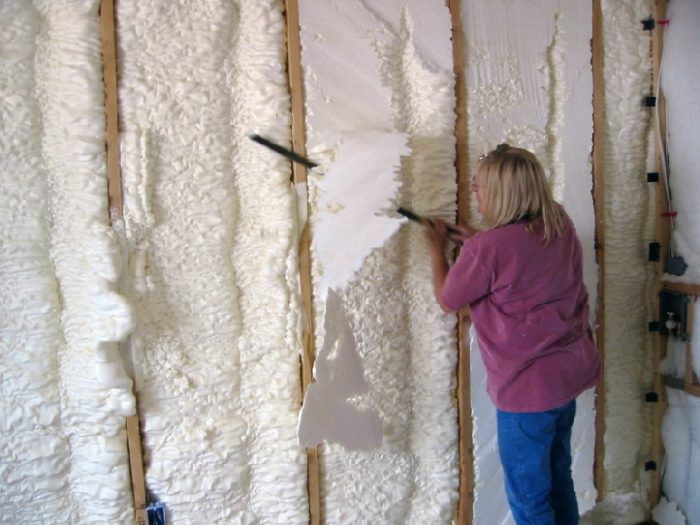Do Wall and Ceiling Foam Insulation Reduce Noise?


Over time the distance between a neighboring company has decreased, which is why minimizing or blocking the sound transfer is essential for any new or existing construction. It is when you ask yourself whether a spray foam helps reduce sound or how a soundproof access panels can help control the amount of noise in the area.
What is Spray Foam Insulation?
The spray foam insulation is also known as polyurethane foam, and it will quickly expand once sprayed to the metal walls, wall cavities, and roof tiles. It typically has two variants, closed-cell, and open-cell spray foams, with different features. However, do they reduce noise?
If you want insulation that reduces noise, spray foam is not the best option. Instead, the two variants are best for thermal insulation and not insulating sound. They are not made to block sound waves but reduce air infiltration.
What is an open-cell foam?
Open-cell foam simply means that the “cells” are left open to make the materials more flexible and softer. It is also less dense than closed-cell foams. Heat resistance is also lower compared to closed-cell foams; for this reason, this foam is an average thermal insulator.
We can say that open-cell is much better than closed-cell foam when it comes to insulators and soundproofing, but still, they are not your best choice in the market. It is because both of them lack enough mass to absorb any sound waves.
What is a closed-cell foam?
It is of wholly closed cells, preventing moisture and air from penetrating your building. As mentioned above, it is also much denser than open-cell foam. They are also great for thermal insulation and are well-known in that field.
Regarding reducing noise, the closed-cell features have lower noise-deadening grades. Although they are known to be much more rigid than open-cell, they are still not proof against noise transmission and are not effective for soundproofing your buildings.
What is the best option for soundproofing?
Because all spray foams are more effective for thermal insulation, you might consider using other soundproofing materials such as Rockwool, acoustic foam, and fiberglass. Below are the effects of each alternative material.
-
Acoustic foam insulation: polyurethane foam is the main composition of acoustic foam, which is why it is easier to apply to any building. The best thing these soundproofing materials offer is that they also enhance the sound quality in your rooms and absorb the noises.
They are commonly applied to lessen the noise waves while preventing background sound and echoes. Like the spray foam, it also provides extra thermal insulation advantages you can’t find with the Rockwool and fiberglass.
-
Fiberglass insulation: Since fiberglass offers insulating features, they are typically for noise insulation. You are doing a great job if you are using fiberglass insulation to insulate your building. It will not only block any sound that comes on the exterior of the building but also blocks the waves that can exit your building. It may also improve the temperature of any room.
-
Rockwool insulation: Rockwool insulation is also known as mineral wool or stone wool, and they are rock-based mineral fiber insulators. They are from recycled slag and basalt rock. Such minerals are melted first before being spun into fibers.
Rockwool is applied to provide building thermal insulation, soundproofing, and structural insulation. Installers compress them into sheets or rolls, their ability to permeate noise waves makes them the best option for insulating sounds.
Should you use spray foam?
Spray foam is not the best for insulating noise. They are much more helpful when it comes to thermal insulation. However, you can always choose different options for soundproofing mentioned above. You might also want to use soundproof access panels for your buildings.
